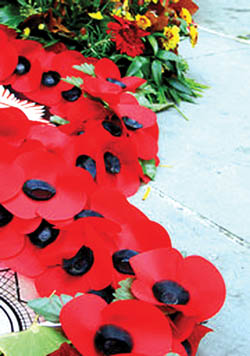
Coastal conservation project in the South
A coastal conservation project has been launched by the Disaster
Management Ministry, which will result in shore-associated plants coming
up along the coastal belt in the Southern Province.

The project will extend from Goiyapana to Dodampahala, Dikwella.
The conservation project will be handled by the Matara District
Disaster Management Unit under the supervision and assistance of the
Ministry. It will be activated by Disaster Management Societies formed
at coastal Grama Niladhari Divisions. Plants which grow naturally along
shores, like Wetakeiya, Mudilla, Kottamba and Vara will be supplied by
the District Disaster Management Committee and will be planted along the
shore area of the coastal belt.
Vegetation of this type growing along the sea shore is expected to
provide at least some protection from harsh ocean waves. The
responsibility of planting and caring for the plants will be entrusted
to the Village Disaster Management Committees.
A sum of Rs. 350,000 has been provided by the Disaster Management
Ministry to carry out this project. It is to be managed alongside the
ten million Tree Planting Campaign mooted by the First Lady.
Remember the dead; don't forget the living
Today is Remembrance Sunday, when many countries in the world
including Sri Lanka remember their war-dead. In Sri Lanka, the main
events related to the day will be held at the Cenotaph War Memorial at
the Vihara Maha Devi Park, Colombo.

They are organised by the Sri Lanka Ex-Servicemen's Association,
which has a membership drawn from the Army, Navy and Air Force.
Many countries have a special day to remember their war heroes,
whether they are dead or still fighting. Some of them are, Veterans' Day
in the USA, Armistice Day in France and Remembrance Day in Britain.
November is considered as the Month of Remembrance by most countries,
especially those who took part in the First and Second World Wars.
The British Remembrance Day is always held on November 11. It is on
this day that World War I ended in 1918, when the Armistice Treaty was
signed in Northern France, at 5.00am. Six hours later, the fighting
stopped, and to commemorate this, a two-minute silence is observed on
the 11th hour of the 11th day of the 11th month.
The nearest Sunday to the 11th is called Remembrance Sunday, when
ceremonies are held in honour of those involved in wars, and wreaths are
laid on war memorials. A two-minute silence is followed by a bugler
playing 'The Last Post', reminding people of times of war when trumpets
were also used in battles.
Artificial poppies are worn by people as the poppy is considered the
flower of remembrance. The poppy is more than a symbol - it is a source
of hope and aid to many. Once a year, close to this day, the public are
invited to buy poppies.
The red flowers are made by hospitalised soldiers in memory of their
fallen comrades. All proceeds from the Poppy Day sale are used to
provide welfare and other facilities for disabled soldiers and
dependents of dead servicemen. The theory behind the practice is
'Remember the dead; don't forget the living'.
The poppy was adopted as the symbol of remembrance because it was
widespread on the battlefields of Europe after the First World War. The
soil disturbances caused by trench-digging and shellfire produced ideal
conditions for them to grow, and they appeared in vast numbers,
especially in the Flanders Fields of Belgium where there was heavy
fighting. The red petals of the flower symbolised the blood left by
soldiers, and came to be associated with remembrance.
Our country is also going through a decade-old war. This has robbed
the lives of many armed services personnel, who were in the prime of
their youth.
On this day, it is our duty to remember and honour them - the brave
Sri Lankan soldiers who paid the ultimate sacrifice in order to provide
a safe and secure country for the rest of us!
International Day for Tolerance
Living in a multi-racial, multi-religious country, tolerance is a
virtue that we must learn to practise. Tolerance is respect, acceptance
and appreciation of the rich diversity of the world's cultures,
communication and freedom of thought, conscience and belief; or, in
short, harmony in differences.
In the modern world, where every person is concerned only with
him/her and improving their material goals, tolerance is a disappearing
trait. However, it is a must if we are to live peacefully with and among
other people.
Why are we talking about tolerance today? Because, November 16 is the
International Day for Tolerance as designated by the United Nations. In
1996, the UN General Assembly invited member states to observe the Day
with activities directed towards both educational establishments and the
wider public.
This action came in the wake of the UN Year for Tolerance, 1995,
declared by the Assembly in 1993. The Year had been the initiative of
the General Conference of the United Nations Educational, Scientific and
Cultural Organisation (UNESCO). On November 16, 1995, the UNESCO member
states had adopted the Declaration of Principles on Tolerance and
Follow-up Plan of Action for the Year. |


